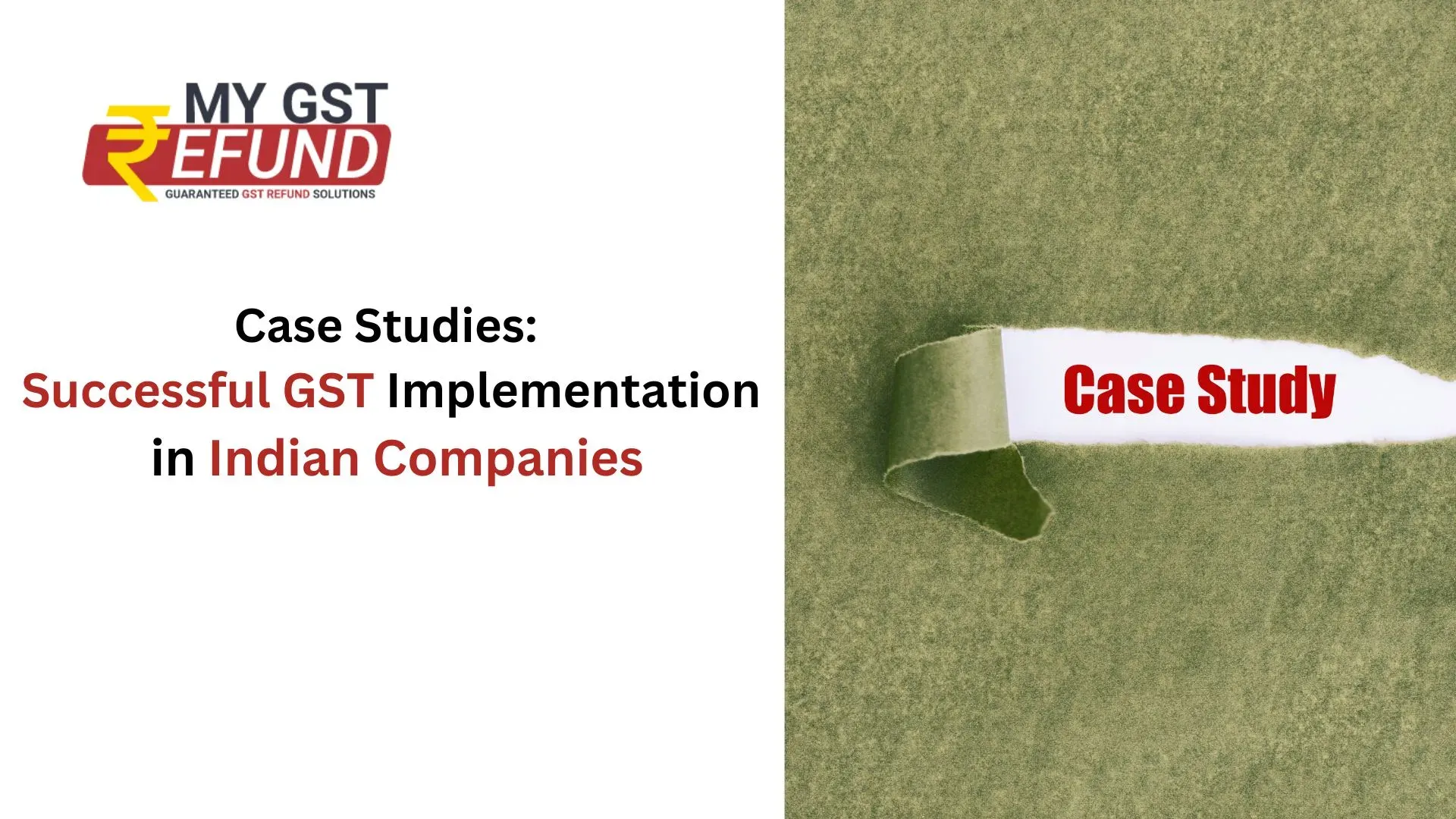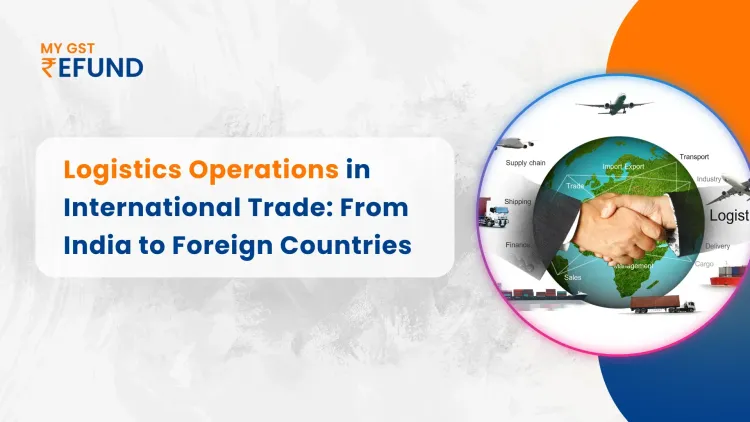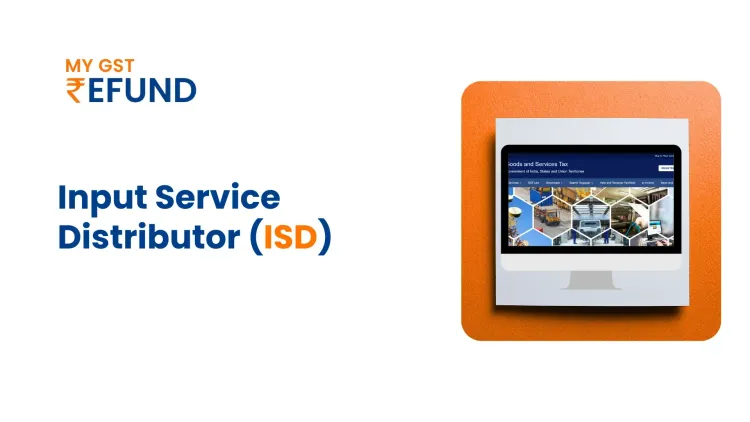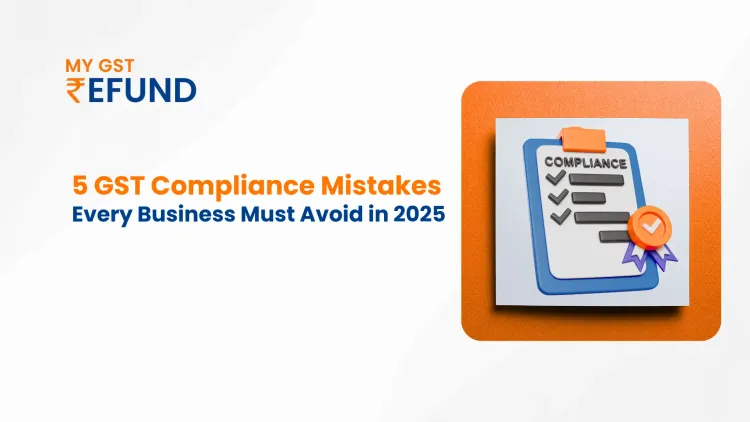Case Studies: Successful GST Implementation in Indian Companies
Published on: Thu Apr 11 2024
Bio (Reveal/Hide)

Case Studies: Successful GST Implementation in Indian Companies
The introduction of the Goods and Services Tax (GST) in India in 2017 was a transformative event that sought to unify the country's complex indirect tax structure. While the transition to the new tax regime posed significant challenges for many businesses, some Indian companies were able to navigate the change successfully and reap the benefits of GST implementation.
In this article, we will explore the case studies on GST of five Indian companies that have demonstrated exemplary GST implementation strategies, highlighting their approaches, the challenges they overcame, and the outcomes they achieved. Let us explore the GST Implementation in Indian Companies.
Tata Consultancy Services (TCS)
In our case studies on GST we shall discuss about one of India's largest IT services companies, Tata Consultancy Services (TCS) faced a considerable challenge in adapting to the GST regime. With a vast network of offices and delivery centers across the country, the company had to ensure a seamless transition to the new tax system.
TCS proactively began its GST preparedness efforts well in advance of the implementation date. The company formed a dedicated GST transition team that spearheaded the entire process, from analyzing the impact of GST on its operations to implementing the necessary changes.
One of the key strategies employed by TCS was the standardization of its invoicing and accounting systems across all its locations. By centralizing these processes, the company was able to ensure consistency and accuracy in its GST compliance. Additionally, TCS invested in robust technology solutions, including enterprise resource planning (ERP) systems and GST-specific software, to automate the majority of its tax-related tasks.
The results of TCS's GST implementation efforts have been impressive. According to the company's financial reports, TCS was able to achieve a high level of GST compliance, with minimal disruption to its business operations. In fact, TCS was recognized as one of the "GST Compliant Companies of the Year" by the Goods and Services Tax Network (GSTN) in 2018. The impact of TCS's successful GST implementation can be seen in its financial performance. In the 2018-19 fiscal year, the company's effective tax rate was approximately 26%, down from around 34% in the pre-GST era. This has translated into substantial cost savings and improved profitability for the IT services giant.
Reliance Industries Limited (RIL)
Reliance Industries Limited (RIL), one of India's largest conglomerates, faced a unique set of challenges in transitioning to the GST regime. With a diverse portfolio of businesses, including oil and gas, petrochemicals, retail, and telecommunications, the company had to navigate the complexities of the new tax structure across its various operations.
RIL's approach to GST implementation was characterized by a strong focus on technology and data-driven decision-making. The company developed a centralized GST compliance management system that integrated its ERP, invoicing, and tax reporting systems. This allowed RIL to streamline its tax-related processes, reduce the risk of errors, and ensure timely compliance with GST regulations.
In addition to technological solutions, RIL also invested heavily in training and upskilling its employees to ensure a smooth transition. The company conducted extensive workshops and training sessions to educate its workforce on the intricacies of the GST system, enabling them to adapt to the new tax regime seamlessly. The results of RIL's efforts have been evident in its financial performance. According to the company's annual reports, RIL's effective tax rate has decreased from around 23% in the pre-GST era to approximately 20% in the post-GST period. This has contributed to an improvement in the company's overall profitability and competitiveness.
Moreover, RIL's successful GST implementation has also had a positive impact on its supply chain efficiency. By streamlining its tax-related processes and reducing the administrative burden, the company has been able to optimize its logistics and inventory management, leading to cost savings and improved operational efficiency.
Hindustan Unilever Limited (HUL)
Hindustan Unilever Limited (HUL), the Indian subsidiary of the global consumer goods giant Unilever, faced a unique set of challenges in implementing GST due to the sheer scale and complexity of its operations. HUL's approach to GST implementation was characterized by a focus on collaboration and cross-functional coordination. The company formed a dedicated GST transition team that brought together experts from various departments, including finance, IT, supply chain, and legal. This collaborative approach ensured that the company's GST implementation strategy addressed the diverse needs and concerns of its different business units.
One of the key strategies employed by HUL was the development of a robust data management system. The company invested in advanced analytics and business intelligence tools to gain a comprehensive understanding of the impact of GST on its operations. This data-driven approach enabled HUL to make informed decisions, optimize its supply chain, and minimize the disruption to its business.
HUL also prioritized the training and upskilling of its employees to ensure their readiness for the GST transition. The company conducted extensive training programs, both online and offline, to educate its workforce on the new tax regime and its implications for their respective roles. The results of HUL's GST implementation efforts have been impressive. According to the company's financial reports, HUL's effective tax rate has decreased from around 31% in the pre-GST era to approximately 27% in the post-GST period. This has contributed to an improvement in the company's profitability and competitiveness.
Moreover, HUL's successful GST implementation has also had a positive impact on its supply chain efficiency. By optimizing its logistics and inventory management, the company has been able to reduce its transportation costs and improve the availability of its products across the country.
Godrej Consumer Products Limited (GCPL)
Godrej Consumer Products Limited (GCPL), a leading Indian FMCG company, faced significant challenges in implementing GST due to the complexity of its product portfolio and the diversity of its supply chain.
GCPL's approach to GST implementation was characterized by a focus on technology-driven solutions and cross-functional collaboration. The company developed a centralized GST compliance platform that integrated its ERP, invoicing, and tax reporting systems. This platform enabled GCPL to streamline its tax-related processes, improve data accuracy, and ensure timely compliance with GST regulations.
In addition to technological solutions, GCPL also prioritized the training and upskilling of its employees. The company conducted comprehensive training programs, both online and offline, to educate its workforce on the intricacies of the GST system. This ensured that GCPL's employees were well-equipped to handle the new tax regime and minimize any disruptions to the company's operations.
The results of GCPL's GST implementation efforts have been positive. According to the company's financial reports, GCPL's effective tax rate has decreased from around 29% in the pre-GST era to approximately 25% in the post-GST period. This has contributed to an improvement in the company's profitability and competitiveness.
Furthermore, GCPL's successful GST implementation has also had a positive impact on its supply chain efficiency. By streamlining its logistics and inventory management, the company has been able to reduce its transportation costs and improve the availability of its products across the country.
Maruti Suzuki India Limited (MSIL)
Maruti Suzuki India Limited (MSIL), the leading passenger vehicle manufacturer in India, faced unique challenges in implementing GST due to the complexity of its supply chain and the diverse nature of its product portfolio.
MSIL's approach to GST implementation was characterized by a focus on collaboration and communication. The company formed a dedicated GST transition team that brought together experts from various departments, including finance, IT, supply chain, and dealer networks. This collaborative approach ensured that the company's GST implementation strategy addressed the diverse needs and concerns of its stakeholders.
One of the key strategies employed by MSIL was the development of a comprehensive training and awareness program for its dealers and suppliers. The company conducted extensive workshops and training sessions to educate its network on the intricacies of the GST system, enabling them to adapt to the new tax regime seamlessly. MSIL also invested heavily in technology solutions to streamline its GST-related processes. The company developed a centralized GST compliance platform that integrated its ERP, invoicing, and tax reporting systems. This platform enabled MSIL to automate the majority of its tax-related tasks, reducing the risk of errors and ensuring timely compliance with GST regulations.
The results of MSIL's GST implementation efforts have been impressive. According to the company's financial reports, MSIL's effective tax rate has decreased from around 27% in the pre-GST era to approximately 23% in the post-GST period. This has contributed to an improvement in the company's profitability and competitiveness.
Moreover, MSIL's successful GST implementation has also had a positive impact on its supply chain efficiency. By optimizing its logistics and inventory management, the company has been able to reduce its transportation costs and improve the availability of its vehicles across the country.
Conclusion
The successful implementation of GST in these Indian companies can be attributed to a combination of strategic planning, technology integration, and employee training. By proactively addressing the challenges posed by the new tax regime, these companies have not only achieved compliance but also reaped tangible benefits in the form of cost savings, improved profitability, and enhanced operational efficiency.
The case studies of TCS, Reliance Industries, Hindustan Unilever, Godrej Consumer Products, and Maruti Suzuki demonstrate that a well-executed GST implementation strategy can be a significant competitive advantage for businesses operating in the Indian market. As the country continues to refine and improve the GST system, it is likely that more companies will follow the example of these trailblazers, paving the way for a more seamless and efficient tax landscape in India.
Related Posts






